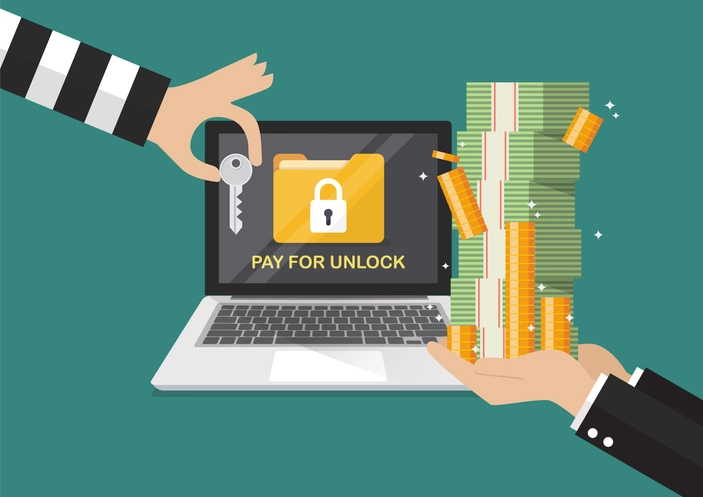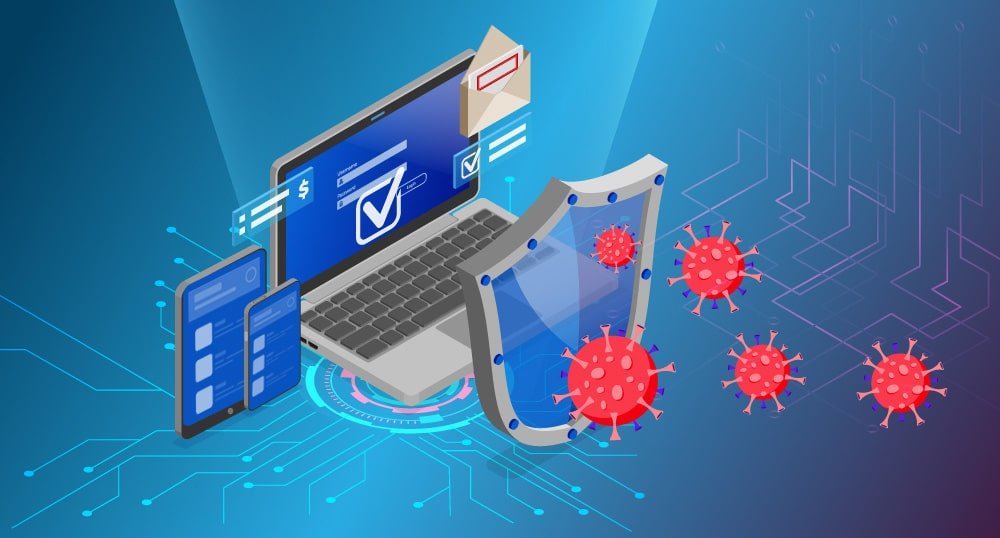Six Defenses Against Cyberattacks

Do you know Six Defenses Against Cyberattacks? Several organizations and enterprises operate online over the internet in the current digital era. Yet doing so leaves them open to cyberattacks. A strong cybersecurity solution is necessary because of this. But first, let’s define what a cyberattack is.
Cyberattacks occur when your network and systems are deliberately used to breach, leak, steal, or hold your data hostage. According to Forbes, small firms are more likely than huge corporations to experience data breaches.
This is probably due to the lack of reliable cybersecurity at most small enterprises. Even if they do, it is likely neglected, making it easy for cybercriminals to infiltrate without breaking a sweat.
Large businesses are still not immune to these types of hostile attempts, though. Because cyberattacks frequently improve at the same rate as technology, hackers are able to bypass the sophisticated security measures that these businesses employ.
Check out Rubrik.com or other internet service providers that offer similar security measures if you’re looking for strategies to protect your data. They can assist you in developing an efficient cybersecurity solution and a data recovery strategy in case of an emergency.
What Are The Types Of Cyberattacks?
Common types of cyberattacks include the following: Phishing Attacks
These days, phishing is happening more frequently than ever. This operates by tricking potential victims into divulging their personal information by sending emails that appear to be from a reliable source (e.g., card numbers, passwords, usernames, etc.)
Denial-Of-Service Attacks
Attacks known as denial-of-service (Do’s) are meant to bring down a system or a network and bar intended users from using it. This can be accomplished by processing a request that can cause a crash or by saturating the target system with unusual traffic.
Ransomware Attacks

Cybercriminals employ ransomware to encrypt your data and keep it hostage until you pay the demanded ransom. Understanding ransomware recovery may be useful to you when a calamity happens because ransomware is too prevalent and is changing as quickly as technology.
Man-In-The-Middle Attacks
The term “man-in-the-middle” (MITM) describes a cybercriminal who is present during a client-application transaction. In order to obtain personal information, such as account information or login passwords, MITM attackers can eavesdrop on conversations or pose as one of the parties.
SQL Injection
A form of cybersecurity flaw called SQL injection (SQLite) enables hackers to interfere with the queries made by an application. Attackers who shouldn’t have had access to the sensitive material in the first place can examine, alter, or retrieve it using this.
Rootkits
Hackers can infiltrate a private system or network and take control of a specific device by using malicious software known as rootkits. Additionally, it enables attackers to continue operating covertly throughout the procedure.
These are the most typical types of cyberattacks perpetrated by criminals to gain access to a system or network. Password, zero-day vulnerability, cross-site scripting, and internet-of-things assaults are some other types of attacks.
Failing to stop these attacks might cost you hundreds or even millions of dollars—not to mention the temporary or permanent shutdown of your firm.
What Are The Ways To Prevent Cyberattacks?

It’s time to learn the defenses against cyberattacks now that you are aware of the many types and risks they pose. The following are some of the best strategies to guard against cyberattacks reaching your system:
Train Your Employees
Your staff could be a gateway for cybercriminals to access your system. They might send emails asking for personal information or requesting access to a specific document under the guise of someone in your company.
Such bogus emails and links could appear real to a layperson. This is why it’s so important to train your staff.
One of the best ways to stop cybercriminals from accessing your system is to train your staff.
Teach them how to
- Verify emails and links before clicking them.
- Verify email addresses.
- When it comes to emails that look strange, employ common sense. Before you do anything, try to get in touch with the person in question.
You may arrange a session to cover all the information your staff needs to know about data breaches and system hacking. It would be preferable to complete the training on a monthly basis to stay up to speed with all the latest developments in cybersecurity, as cyberattacks change daily.
Keep Your Software Updated
Attacks frequently happen as a result of outdated networks, programmed, or systems. The vulnerability of your system may be used by cybercriminals to launch attacks and take over your system. It is too late to stop them once they have inside.
You might want to think about managing all of your system upgrades with patch management technologies to prevent similar situations. By doing this, you can maintain your system current and more resistant to cyberattacks of any kind.
Implement Endpoint Security

Systems and networks that are connected to devices are protected by endpoint security. Endpoint security, for instance, can ensure that file sharing between devices won’t damage your system if you have mobile access to work files.
Endpoint security makes ensuring that connected devices, such as laptops, tablets, and mobile phones, are shielded from hackers who might exploit them to go around your system.
Use A Firewall
One of the most reliable ways to safeguard your network and system against cyberattacks is to install a firewall. It can stop forced attacks from hurting your system and block them. If you want to know if your system has a firewall, ask your IT department. Install one right now if it isn’t already on your PC.
Back Up Your Data
You are forced to halt operations until the disaster is being rectified since all of your data are being kept prisoner. If you’re able to back up all of your data before a disaster strikes, this issue can be averted.
By regularly backing up your data, you can avoid or minimize system outages, catastrophic data loss, and significant monetary loss. It would be ideal to frequently backup your data every 24 hours to ensure that no data, not even recently registered data, is lost in the event of a disaster.
Make Your Passwords Stronger
Never make use of the same password for several accounts. Moreover, avoid using passwords that are simple to guess, such as birthdays, favorite digits, and phone numbers. To ensure that no one can quickly predict them, you need to make them as difficult as you can.
To construct a strong password, you can combine uppercase and lowercase letters as well as unusual characters like asterisks, exclamation points, and question marks.
Final Thoughts
Every day, cyberattacks get more intricate and varied thanks to the hard work of numerous hackers who made them feasible. You must closely monitor your system if you want to avoid them. Make sure that everything is up to date, that there are barriers in place, and that backups are available. This will assist your business in fending off cyberattacks.











